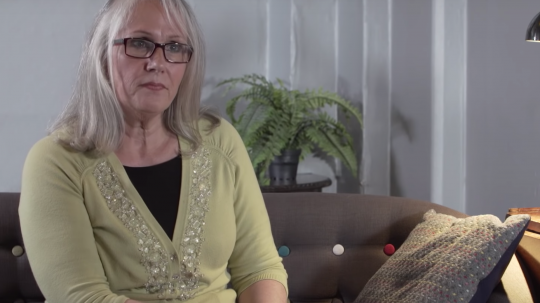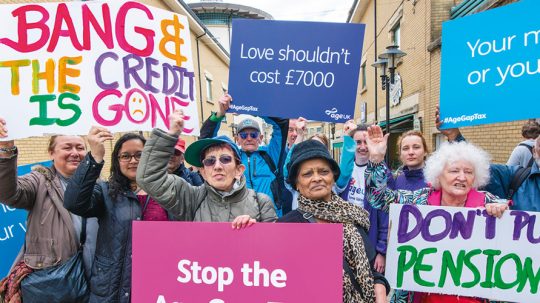In April, the government announced that it had appointed the Hormone Replacement Therapy (HRT) Taskforce Director General to use lessons from the Covid-19 vaccine supply chains to help people access adequate healthcare. HRT is used as a treatment to relieve symptoms of menopause and perimenopause for one million women in the UK, as well as for gender-affirming treatment for some trans women. However, access to HRT has been difficult as HRT supply chain issues have faced issues.
The announcement followed the ongoing shortage of some HRT products in parts of the UK, which led to ‘rationing’ people to only have access to three months of HRT, though women have reported getting supplies for as little as only ten days. Menopausal symptoms can include migraines, back pain, hot flushes, problems with memory and concentration, and mental health issues like depression and anxiety.
The right to health is enshrined in the Constitution of the World Health Organization (1946) and the Universal Declaration of Human Rights (1948) also mentioned health as part of the right to an adequate standard of living. Under Article 12 of the Convention on the Elimination of All Forms of Discrimination against Women, of which the UK is a signatory, countries must take “appropriate measures to eliminate discrimination against women in the field of health care”.
Learning lessons from Covid- vaccine supply chains will help women access adequate healthcare
Vaccine Taskforce Director General, Madelaine McTernan has been tasked with discovering why the shortage happened, procuring additional HRT and developing plans to ensure that women have access to treatment.
Making the announcement, Health and Social Care Secretary Sajid Javid said: “I understand how much women rely on HRT, which is why we will leave no stone unturned to help make sure women can get the HRT they need.”
The Department of Health and Social Care also announced new funding for organisations which specialise in women’s reproductive wellbeing to support women who have experienced menopause or stillbirth to return to the workplace.
‘I didn’t feel like me’: Women left to deal with debilitating symptoms
The shortage has left some women struggling with symptoms of menopause and perimenopause, the transitional period before menopause.
Jules, a teacher and head of literature at a sixth form college in Darlington, northeast England, realised she was perimenopausal when she went to the GP last summer. She had been taking Oestrogel, a gel form of HRT, to ease her symptoms – anger and depression.
Speaking to EachOther, Jules said: “I just didn’t see the point of me”. Though she was not suicidal, she told her husband that she did not ‘want to be here’. “That was scary,” she said.
Vicky Jackson, a co-founder of the community group Perimenopause Support UK, said that many women experience depression when going through perimenopause, but are often prescribed antidepressants rather than HRT. Now, because of the shortage, a lot of women are struggling even more to access HRT and receive adequate standards of healthcare.
Due to the shortage, Jules was not able to access Oestrogel for seven weeks. When she was finally able to get Oestrogel, it arrived in small packets which only lasted nine days. Jules is one of the many women in the UK who have reportedly had to ration HRT after her chemist ran out. Jules said it left her feeling ‘desperate’, with her only other alternative to pay to get the gel privately for £85 per bottle, which many do not have spare.
After posting about her experience on Twitter, Jules received replies from women in different parts of the country, offering to see if they could help by taking her prescriptions to their pharmacy or by posting supplies they no longer needed. Their kindness ‘made her burst into tears’, she said, adding, “Why are we having to do this? It’s just absolutely ridiculous.”
HRT swaps leave women without choices
As a replacement to the gel, Jules was prescribed patches, which irritated her skin and caused “big red squares”. Jules told us she felt ‘like she’d fallen off the oestrogen cliff and just absolutely plummeted’.
“It’s really worrying,” said Jackson. “We do have ladies that were in [our] group who were totally unable to get the treatment that they’re used to.” She said it is a ‘real balance’ to find what works for each woman.
Jules had to take two days off work. “I was so drained. So exhausted from it,” she said. “I don’t like to think at 47 that I can’t do my job properly because of my hormones.”
“I’ll be 50 In a few years, but I’ve still got a young family. I’ve still got a brilliant mind. I still love my job. But it feels like I’m just entering this kind of hazy, nonspecific landscape of middle-aged womanhood.”
“[As women] It just feels like we’re constantly being punished for stuff that’s completely beyond our control. And then, when there is stuff out there that can help us, [they say] no we will not prioritise that so that you can be a happy functioning member of society.”
Jackson said that the experience has left many women feeling “second-rate”. Jackson told us: “I feel as though it’s almost like we’ve stepped back 100 years and women’s health has been disregarded.”
‘Locking the door after the horse had bolted’
The government’s promise to address high costs for women having to get multiple prescriptions in England, by allowing GPs to issue single-cost prescriptions for up to 12 months, will not be implemented until April next year. Plans to tackle ‘double-charging’, when women have to pay prescription costs twice for one course of treatment if it contains two drugs have also been delayed.
Jackson stated: “We’ve got women [in our community] who can’t afford to get their HRT.” She went on to explain the lack of foresight the government have shown in regard to HRT:
“They’ve known for a long time about these issues, but there have not been plans put in place. I know they’ve got a women’s health plan now but it almost seems like it’s locking the door after the horse has bolted.” she stated.
HRT shortages impacting trans women
Similarly, there have been reports that trans women, who opt to take HRT as part of gender-reassignment surgery, have been affected by the shortage. The Huffington Post interviewed Jamie, an 18-year-old from Manchester, who was previously using estradiol gel but then switched to an estradiol pill during the shortage.
“Initially I was extremely anxious since I didn’t know how my provider would work around the shortage, but after switching totally to pills and maintaining similar levels my mental health has been fine,” she said.
Mary Burke, a Clinical Nurse Specialist in Hormone Therapy at The London Transgender Clinic told the I paper that HRT withdrawal can be ‘devastating’ for trans women: “They would start to feel a lot more dysphoric, and that leads to feelings of depression, and huge social anxiety.”
The Minister for Women’s Health Maria Caulfield said: “It’s great we’ve seen demand for HRT rise so much over the last year as it means women are accessing the right support. HRT can help women manage severe, sometimes debilitating, symptoms of the menopause, allowing them to stay in workplaces and live more normal lives.”
Caulfield stated: “I want all women to feel empowered to speak to their GP about whether HRT would be appropriate for them, and for GPs to feel confident in prescribing.”
“The new Taskforce will play a vital role engaging with suppliers, stakeholders and across government to make sure every avenue is explored to ensure all women who want HRT can access it.”
The names of individuals in this article may have been changed in order to protect their identities. If you or someone you know would benefit from some support through the stages of menopause you can seek support here.






